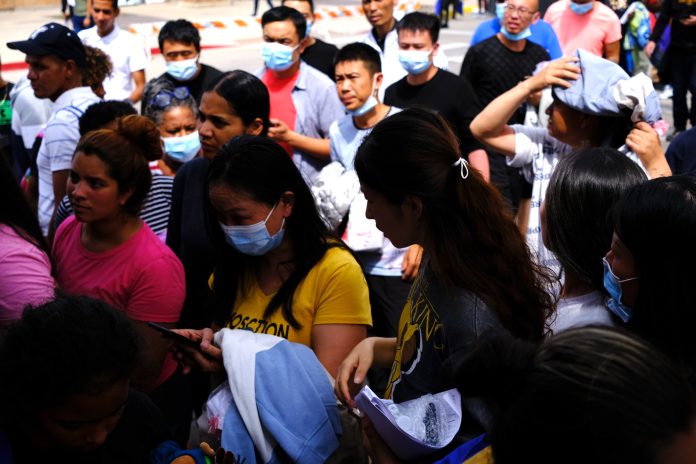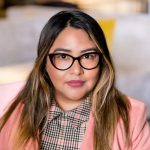
|
Only have a minute? Listen instead
Getting your Trinity Audio player ready...
|
I call myself a radical Fronteriza from the 956 because I don’t settle for the injustices that I see in my community. I fight back. I was raised in the border town of Brownsville and for 29 years I’ve called it home. As a child, I never questioned my freedom in this place. I lived here as an undocumented immigrant from Mexico, but Brownsville didn’t feel dangerous. I didn’t fear Customs and Border Patrol. There was hardly any presence of border enforcement back then, and life felt normal, safe — until it all changed.
I remember being around 10 years old when the safety I’d known started to unravel. After 9/11, my world shifted, and so did the entire border region. I didn’t know it at the time, but those terrorist attacks were the beginning of a long, painful transformation for communities like mine. With the heightened security, the government expanded border enforcement, and suddenly CBP was everywhere. I saw the agents move from patrolling on bicycles to rolling in heavy machinery, their vehicles filling the streets we used to walk on without fear. It was then that the anxiety started. What if they took me away? What if they took my family?
As time passed, things only got worse. The border wall loomed over us, and with it came more agents, more surveillance, more fear. The rhythm of our lives changed. And then, the unthinkable happened: my father was taken. There’s a pain in losing someone to deportation that feels different than any other loss. It’s not like death where closure, however painful, eventually comes. No, this loss is hollow, confusing, and filled with anger.
I’ll never forget the way that felt — the anger, the helplessness. What happened wasn’t just or right, and I knew I couldn’t stay silent. Slowly, I got involved in my community. I started showing up to meetings, listening to stories from other families like mine, and eventually I found my voice. I found power in organizing, in saying out loud that what was happening to us was wrong.
But I wasn’t alone. As I listened to my neighbors and my friends, I realized that we were all suffering. Deportation wasn’t just something that happened to one family. It was everywhere — like an invisible hand that touched homes at random, leaving destruction in its wake. The cruelty became part of our daily lives, like the constant harassment from CBP. Every checkpoint, every patrol car became a reminder that our lives could be upended in an instant.
And despite our efforts, despite our organizing, CBP continued to grow. According to their own website, “With more than 60,000 employees, U.S. Customs and Border Protection is one of the world’s largest law enforcement organizations.” What does that mean for communities like mine? It means more agents, more patrols, more walls. It means more fear. It means more people being taken from their homes. The deportation machine grinds on, unstoppable, without regard for the human lives it destroys.
It’s hard to explain what it feels like to live in constant fear — fear that the life you’ve built, the people you love, could be taken away without warning. This is why it’s so important that we don’t forget the trauma CBP has inflicted on our communities. This is why, even as politicians call for more agents, more walls, more militarization of the border, we must remember what that really means. We must remember the families torn apart, the lives disrupted, the fear that has been woven into the fabric of our everyday existence. We must remember the cruelty.
But remembering isn’t enough. We have to take our power back. We have to demand accountability from CBP for the harm they’ve caused. As we approach Día de los Muertos, a time to remember and celebrate the lives of loved ones lost, some at the hands of CBP or dangerous immigration policies, it becomes even more important that we tell our stories even when it’s painful. To honor these losses and call for accountability, the Texas Civil Rights Project will be hosting altars across Texas to remember the many migrants who have died in CBP custody. Only by confronting this violence head-on can we begin to heal the deep wounds that have been left in our community.
Healing won’t come quickly, and it won’t be easy. But we can start by standing together. By saying that enough is enough. By refusing to let fear and cruelty define us. Maybe then, one day, we’ll feel free again in the place we call home.
Denisse Molina is humanitarian outreach coordinator for the Beyond Borders Program at the Texas Civil Rights Project, based in Austin.




